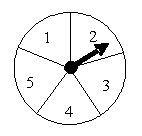Exam 10: Additional Topics in Algebra
Exam 1: Equations and Inequalities107 Questions
Exam 2: Relations, Functions and Graphs196 Questions
Exam 3: Polynomial and Rational Functions122 Questions
Exam 4: Exponential and Logarithmic Functions96 Questions
Exam 5: Introduction to Trigonometric Functions133 Questions
Exam 6: Trigonometric Identities, Inverses, and Equations97 Questions
Exam 7: Applications of Trigonometry86 Questions
Exam 8: Systems of Equations and Inequalities102 Questions
Exam 9: Analytical Geometry122 Questions
Exam 10: Additional Topics in Algebra121 Questions
Exam 11: Bridges to Calculus - an Introduction to Limits40 Questions
Exam 12: Review of Basic Concepts and Skills112 Questions
Select questions type
Determine if the sequence given is arithmetic. If yes, name the common difference. -3, -6, -12, -18, -24, . . .
(Multiple Choice)
4.9/5  (31)
(31)
A Scrabble player has the six letters (A, A, E, E, N, N) in her rack. How many distinguishable, six-letter permutations can be formed?
(Multiple Choice)
4.8/5  (30)
(30)
Use Pascal's triangle and the patterns explored to write the expansion.
(5x + 1)4
(Short Answer)
4.7/5  (41)
(41)
Use the following to answer questions :
A game is played using a spinner like the one shown.  -For each spin, what is the probability you spin a 4?
-For each spin, what is the probability you spin a 4?
(Multiple Choice)
4.8/5  (35)
(35)
Use the following to answer questions :
A teacher is going to assign each student a 3-digit code using the digits 0 through 3.
-How many codes are possible if repetitions are not allowed and the code must be less than 200 and divisible by 10?
(Multiple Choice)
4.8/5  (29)
(29)
Find the number of terms in the series and then find the sum using the alternate formula. 11 + 19 + 27 + 35 + 43 + . . . + 163
(Multiple Choice)
4.8/5  (35)
(35)
Jim deposits $15,000 in an account on January 1. Starting on January 2, he withdraws $100 each morning. Find the amount in his account on the evening of January 27. (Hint: For a1 = 15,000, the amount remaining 26 days later will be what term of the sequence?)
(Multiple Choice)
4.9/5  (35)
(35)
Use the binomial theorem to expand the following expression.
(p + q)5
(Short Answer)
4.8/5  (32)
(32)
Find the indicated sum. Use the summation properties from Section 8.1. Round your answer to 2 decimal places. 
(Multiple Choice)
4.9/5  (30)
(30)
Two fair dice are rolled. What is the probability of rolling a 4 on at least one die and a sum less than 10?
(Multiple Choice)
4.9/5  (42)
(42)
Use the complementary events to complete the exercise. One card is drawn from a standard deck of 52 cards. What is the probability the card is not a king?
(Multiple Choice)
4.8/5  (35)
(35)
Use mathematical induction to prove the statement is true for all natural numbers n.
3n ≥ n + 2.
(Essay)
4.8/5  (32)
(32)
Two fair dice are rolled. What is the probability of rolling a sum of 3 or a sum of 8?
(Short Answer)
4.8/5  (38)
(38)
Use the alternative formula for the nth partial sum to compute S15 for the sequence.
-18 + (-15.5) + (-13) + (-10.5) + (-8) + . . .
(Short Answer)
4.9/5  (34)
(34)
Use the following to answer questions :
A teacher asked her students, "Do you like strawberry ice cream?" The responses are shown in the following table.
 One student is selected at random.
-What is the probability the student answered "No" and is a girl?
One student is selected at random.
-What is the probability the student answered "No" and is a girl?
(Multiple Choice)
4.8/5  (37)
(37)
Showing 101 - 120 of 121
Filters
- Essay(0)
- Multiple Choice(0)
- Short Answer(0)
- True False(0)
- Matching(0)